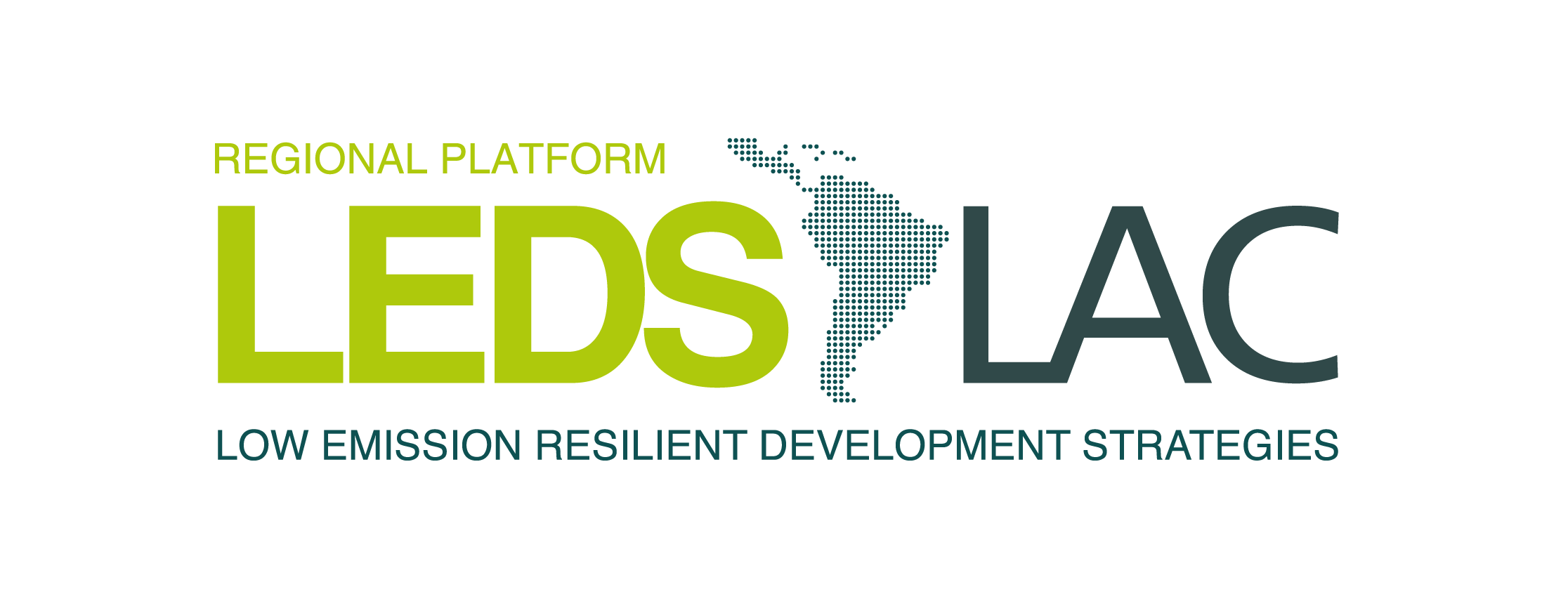C40 Climate Action Planning Framework
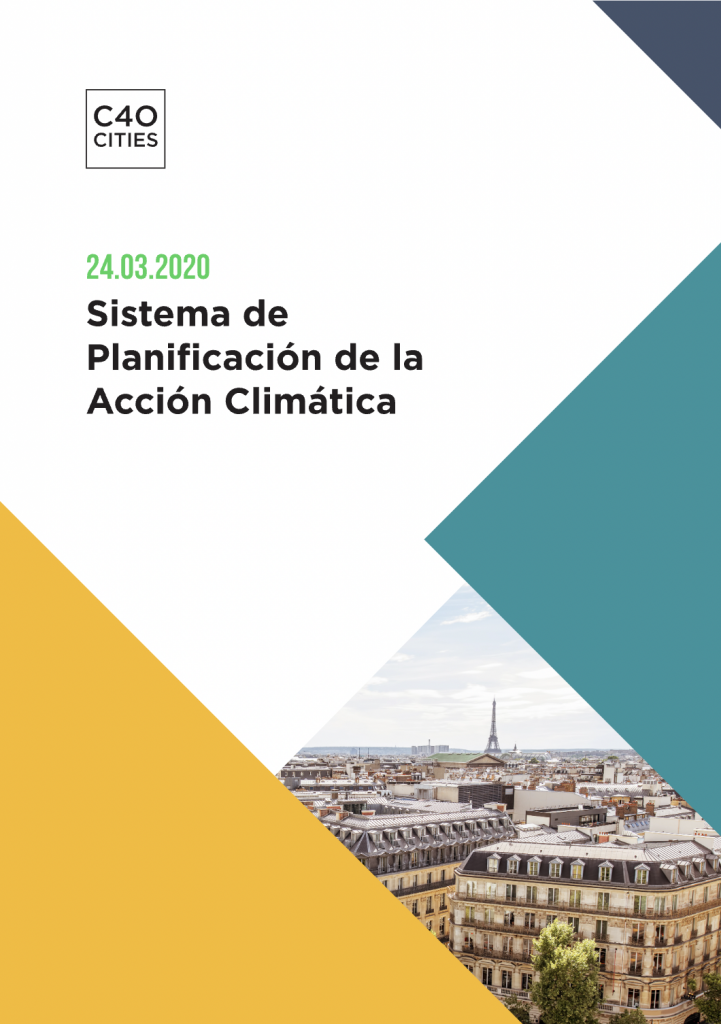
Climate action planning framework composed of various tools, reports and models for city-level climate action plans compatible with net-zero emissions by 2050.
Guide to prepare Greenhouse Gas (GHG) Inventories and Climate Change Mitigation Measures in Peruvian cities
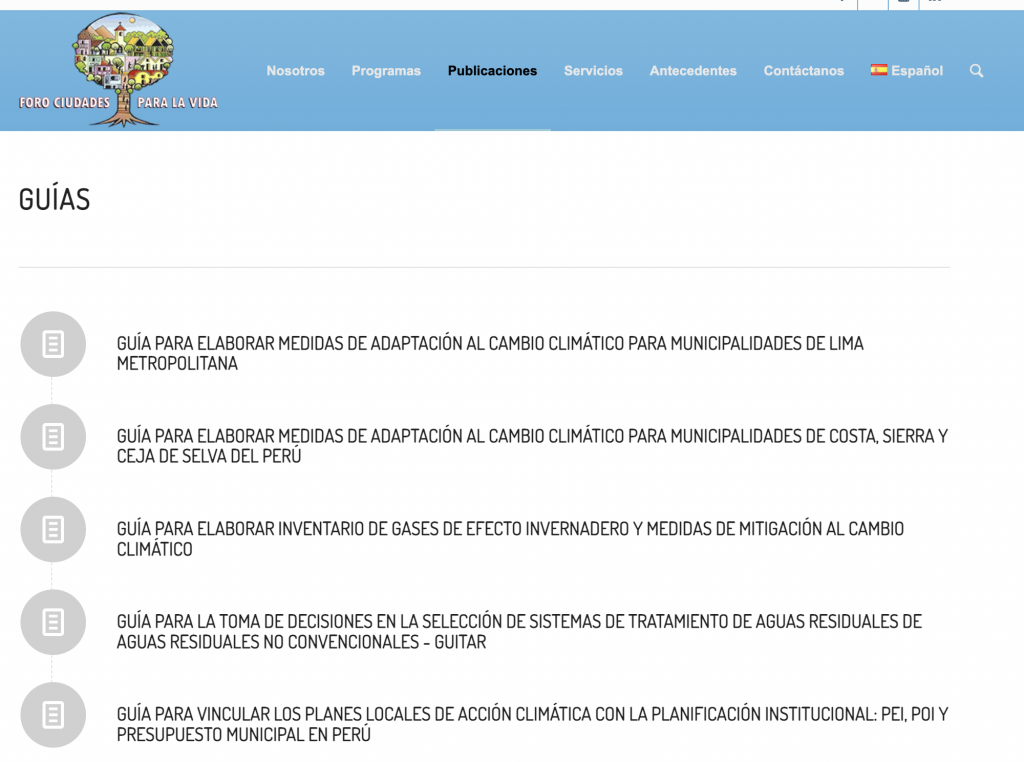
The CIRIS methodology developed by C40 is developed to carry out an inventory of greenhouse gases at the local level and 27 GHG emission mitigation measures are proposed that could be implemented by municipalities at no great cost or effort in Peruvian cities.
Guide for the Elaboration of Climate Change Adaptation Measures for District Municipalities of Metropolitan Lima

Seeks to develop capacities of Peruvian district municipalities to formulate adaptation measures in Metropolitan Lima to the impacts of climate hazards. It proposes 4 steps: i) identify climate and CC-induced hazards, ii) assess vulnerability to them, iii) propose adaptation measures according to municipal competencies, iv) propose ways of prioritization, v) describe good practices in urban adaptation and vi) a normative annex.
Guide to Develop Climate Change Adaptation Measures for Municipalities in the Coast, Highlands and jungle belt of Peru, Cities for Life Forum, Global Covenant of Mayors for Climate and Energy.

Seeks to develop capacities of Peruvian district municipalities to formulate adaptation measures in the coast, highlands and jungle belt to face the impacts of climate hazards. It proposes 4 steps: i) identification of climate hazards, ii) vulnerability assessment, iii) adaptation measures according to municipal competencies, iv) prioritization, v) good practices in urban adaptation and vi) normative annex.
NewClimate Institute (2020). Making Long-Term Strategies for Low GHG Development a Reality.
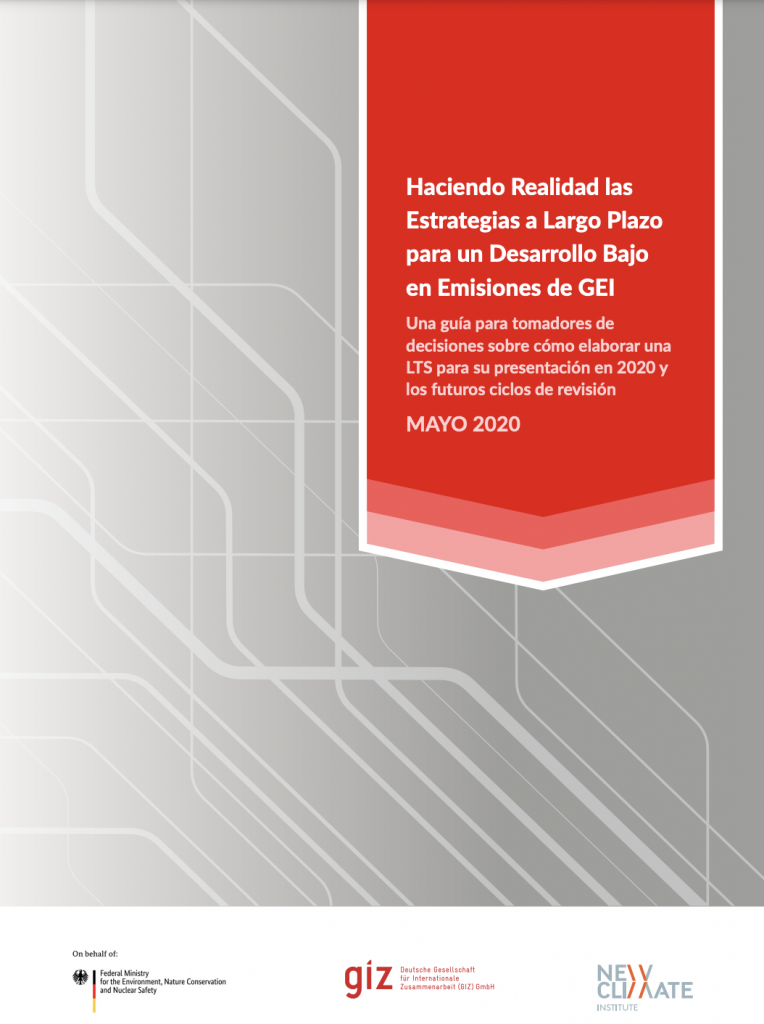
Spanish translation of the guide developed by the New Climate Institute, which offers recommendations to decision-makers on the development of a long-term strategy for low-emission development. The guide is a product of the Capacity Development for Climate Policy program implemented by GIZ and the New Climate Institute, with the support of IKI and BMU.
Long-term Climate Strategies Training Course

The four-week virtual training course aims to strengthen technical and methodological competencies of stakeholders for the development and implementation of Long Term Climate Strategies in their countries, in line with their national commitments reflected in their NDCs. The course is oriented to public sector representatives, and can be carried out at the request of countries in the region. For more information, please contact [email protected].
One Planet City Challenge Assessment Framework

The OPCC combines science-based independent assessment and guidance on cities' climate action plans and targets with friendly competition between cities, while celebrating the most ambitious and innovative ideas, actions, people and policies. As part of the Challenge process, WWF reviews cities' climate action plans against best practice climate action planning criteria and assesses whether their targets are in line with the Paris Agreement to keep global warming within 1.5°C.
The Greenhouse Gas Abatement Cost Model (GACMO)
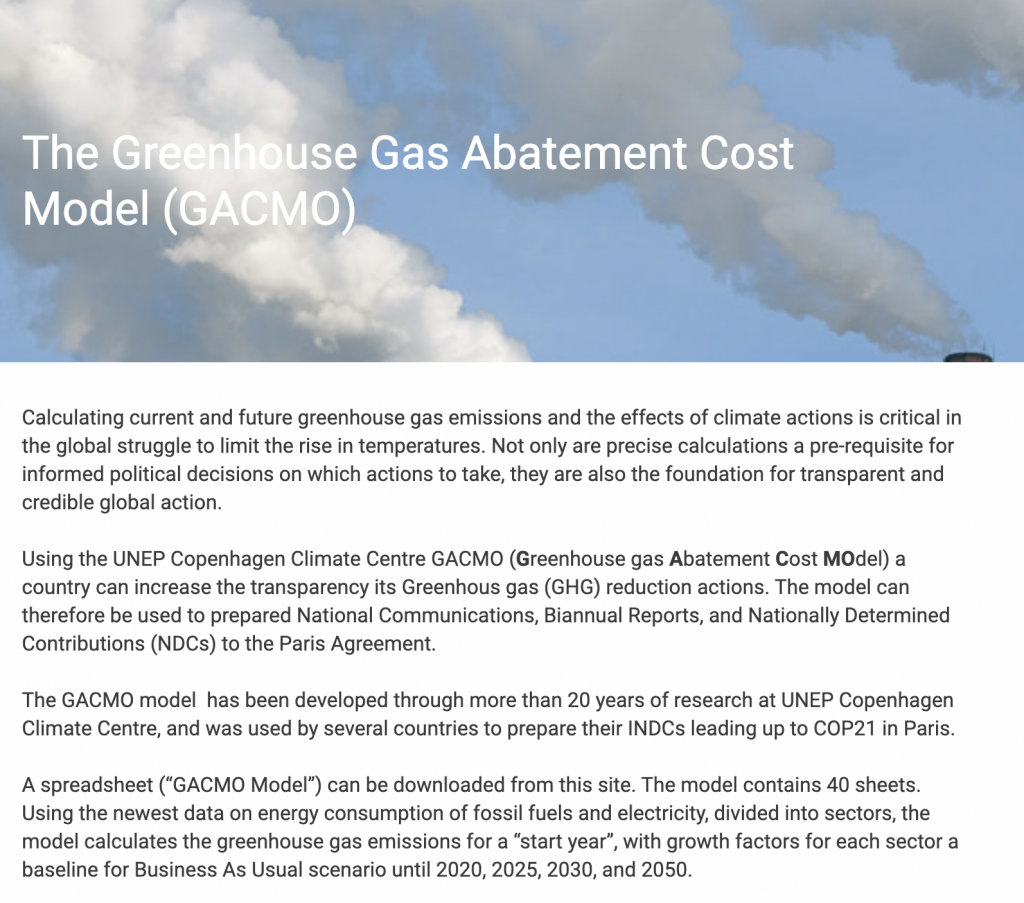
Using the UNEP Copenhagen Climate Centre's GACMO (Greenhouse Gas Reduction Cost Model), a country can increase the transparency of its GHG reduction actions. The GACMO spreadsheet model has been developed by the UNEP Copenhagen Climate Centre, and used by several countries to prepare their INDCs for COP21 in Paris. Based on this model, countries can calculate and track the GHG reduction and economic effects of about 100 climate mitigation actions. The model is also a useful tool for MRV.
Pathways Framework Toolkit

The Pathways Framework is a step-by-step toolkit for ambitious state and regional governments committed to decarbonizing their economies. The Framework is a 9-step process underpinned by political leadership and buy-in, and strong and transparent stakeholder engagement that has three key outcomes:
(1) define a vision, (2) identify priority actions with the greatest potential for economic transformation, and (3) implement the roadmap and monitor progress toward the objectives.
Conceptual framework for the classification of public spending on climate change in Latin America and the Caribbean
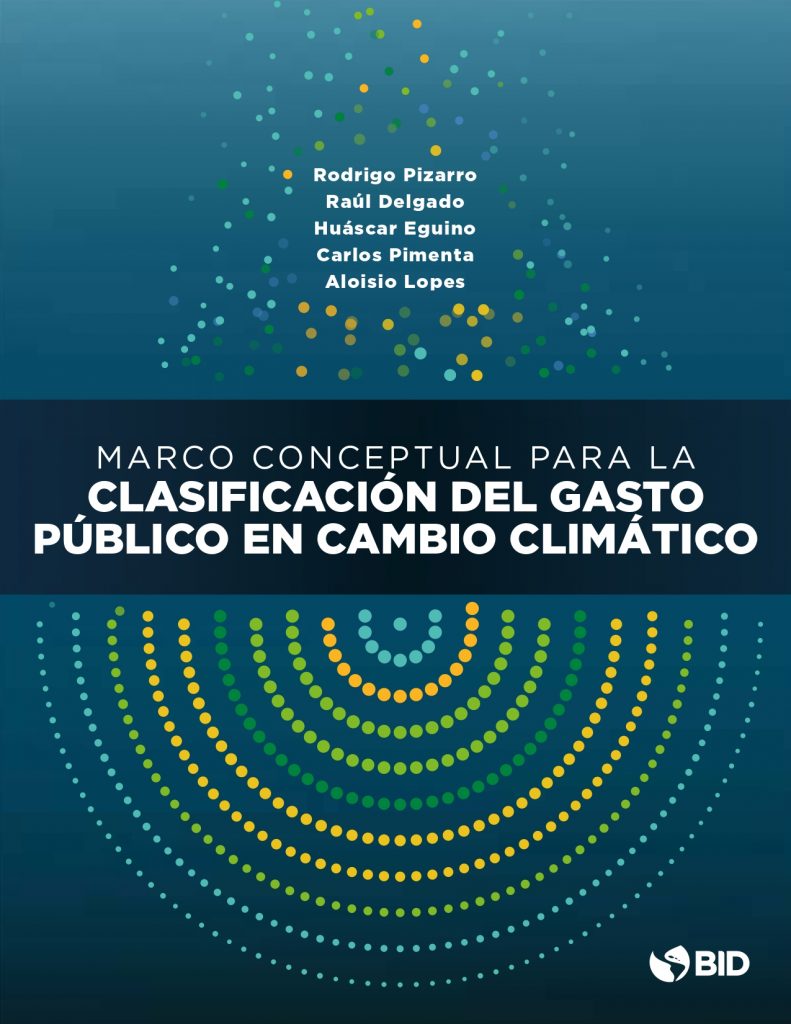
To align public expenditures with national climate change strategies and NDC commitments, countries need to periodically identify climate-related budget expenditures, whether positive or negative. This publication provides a methodology for countries to classify these expenditures in a manner that is consistent with recognized international statistical standards.
Fiscal policy and climate change: recent experiences of ministries of finance in Latin America and the Caribbean.

This publication presents a set of recent experiences of ministries of finance in the Latin American and Caribbean region in three areas of intervention where climate change issues and the fiscal policy responsibility of these ministries converge. The publication also provides elements for the design of fiscal policies to contribute to sustainable growth.
Sisepuede - Simulating Sectoral Pathways and Uncertainty Exploration for Decarbonization
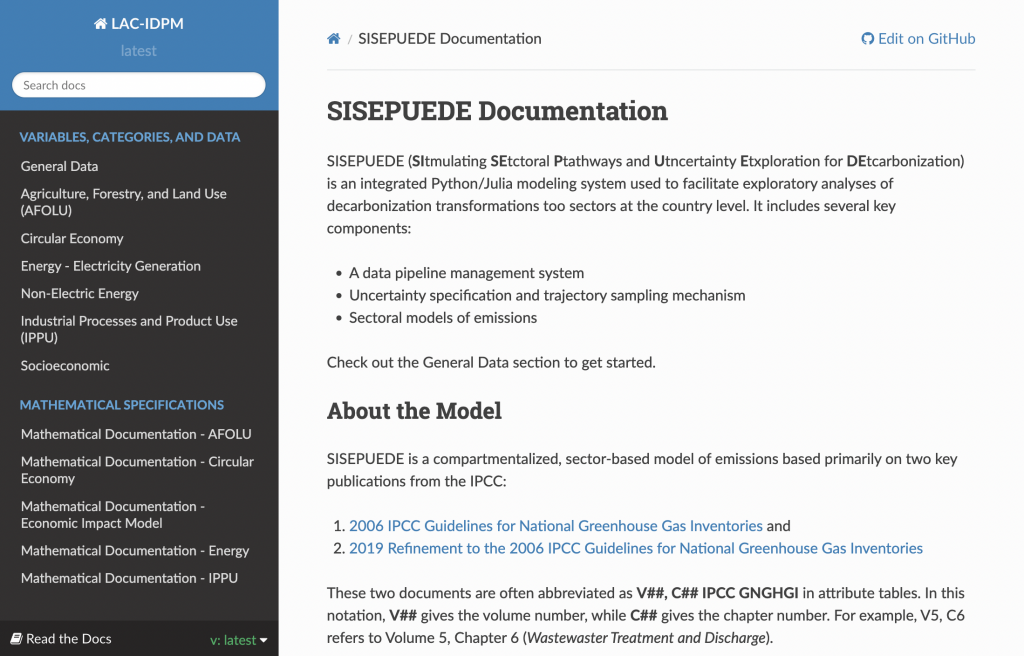
This free, open source model allows the generation of numerical simulations of GHG emission reductions in all sectors, as well as the associated benefits and costs.
It comes pre-calibrated for Latin America and the Caribbean. It is still under development, and will be fully available in July 2023.
